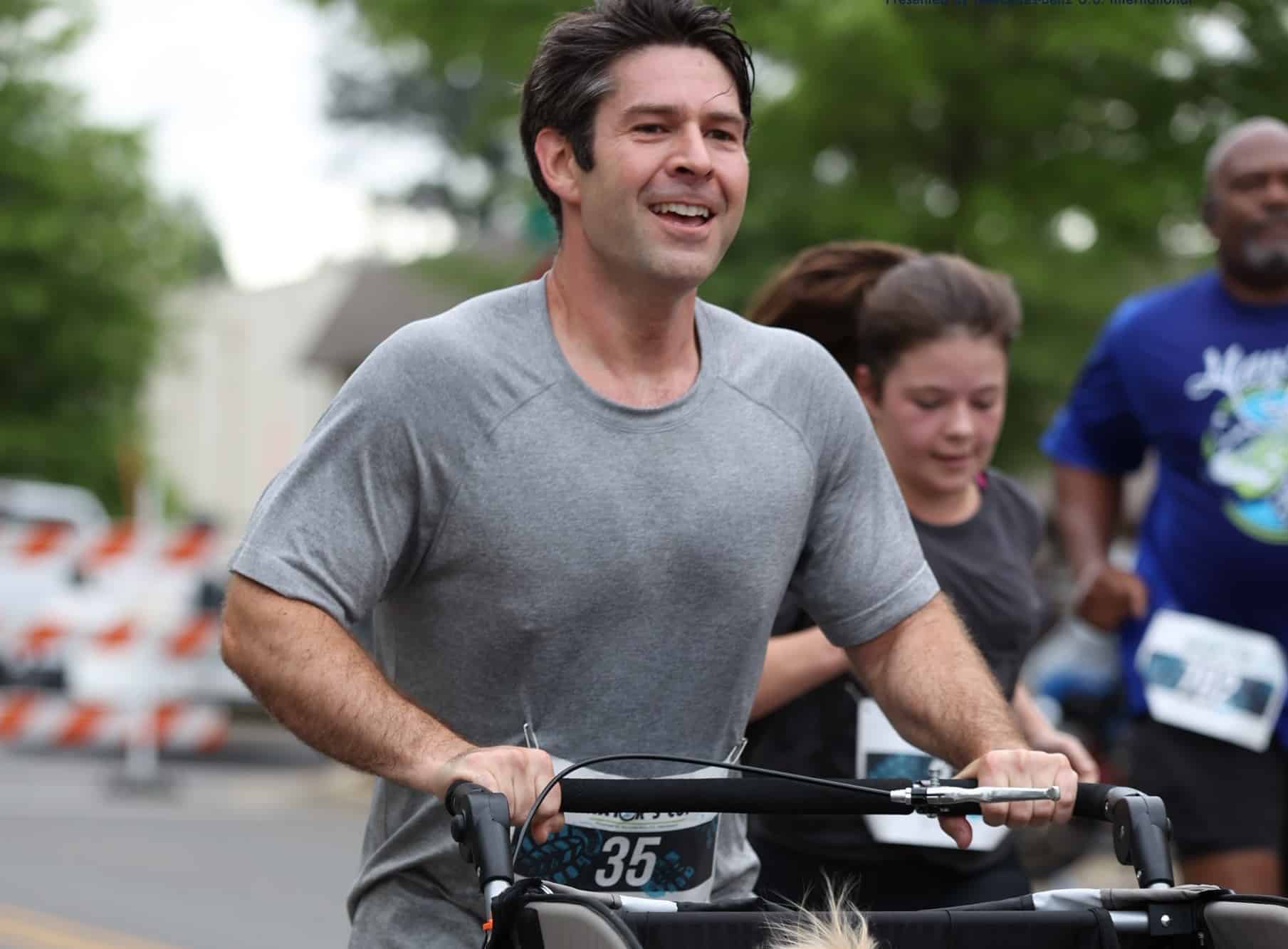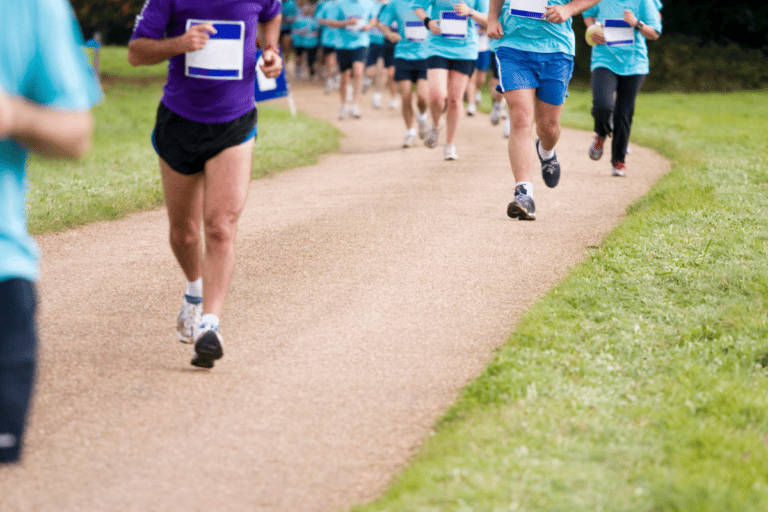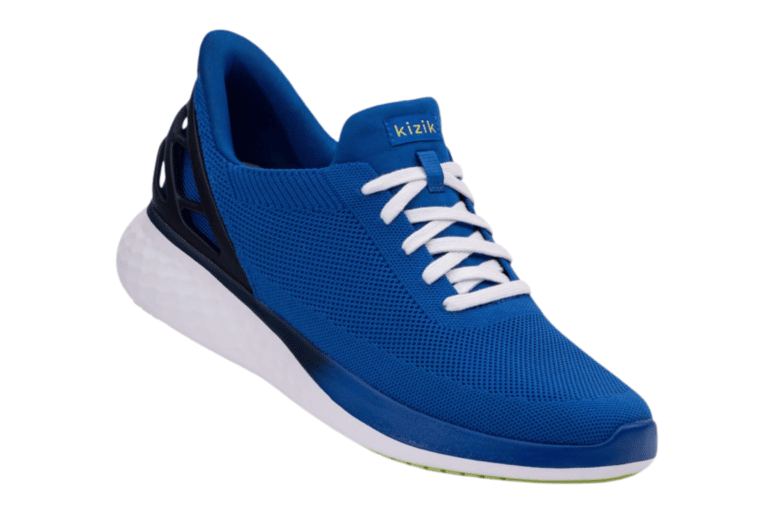Listening to Music During a Marathon: This Is What The Rules Say
Listening to music is a great way to motivate yourself during your morning run or help you relax after a long day if you run at night. If you spend your training runs listening to music, is it acceptable to listen while you’re running a marathon?
You can listen to music during a marathon, although most organizations discourage them for safety reasons. Although running to a beat can seem less strenuous, it can also throw off your running pace, decrease awareness of your body’s movements, and make you less likely to hear course announcements, other runners, or even vehicles around you.
Read on to learn more about the rules regarding wearing headphones or earbuds while running a marathon, plus the potential pros and cons of doing so.
Are runners allowed to listen to music during a marathon?
You’ve done all your training to the beat of your favorite playlist, but the time comes to run, and you suddenly wonder if your trusty AirPods are even allowed. Can you listen to music while running a marathon?
Most marathons allow personal music devices and either headphones or earbuds. However, their use is routinely discouraged for safety reasons. Be sure to check with the marathon’s rules to be sure if runners are permitted to listen to music.
If permitted, but discouraged, you will need to make the decision about whether or not to listen to music for yourself. Studies have suggested that listening to music while running can reduce your perceived effort, thereby boosting overall performance, at least for non-elite runners.
However, the same music that allows you to get “in the zone” for your run can also make you unaware of your surroundings, less responsive to cues from your own body, and less focused on your running pace.
Safety concerns
Listening to music while running is typically permitted, although most marathon organizers discourage it.
Listening to music while running is considered a safety concern by race directors because it can lead to lack of awareness of your surroundings, including:
- Course announcements – Announcements during a race are made orally, so you need to hear them if you want to know what’s going on and hear important info about course conditions, hazards, or changes.
- Other runners – Listening to music makes you less aware of other runners, which can be dangerous in a dense pack of arms and legs, when being passed or taking corners, or as fatigue sets in and reduces awareness even more.
- Traffic – While many marathons are on roads entirely closed to traffic, many are not. It is always dangerous to run near traffic without being able to hear vehicles, and we can assume there will always be distracted drivers. Race personnel cannot be everywhere, and marathoners on open roads face an extra risk if music makes them oblivious to their surroundings.
While it is undoubtedly your choice whether to listen to music while you’re running a marathon, you may want to consider keeping the volume down relatively low or keep one ear free to remain aware of what’s happening around you.
Earbuds vs headphones
There are many ways to listen to music on the run – earbuds that are truly wireless, earbuds with hooks or clips, earbuds connected by a neckband, bone conducting “headphones” that stay outside the ear, and even sunglasses with miniature speakers.
Most marathons do not differentiate between headphones and earbuds in their rules, as both are discouraged in equal measure. However, long-distance runners tend to prefer the more secure over-the-ear styles as they are less likely to dislodge while running and are more comfortable for longer stretches.
If your marathon permits the use of music devices, your choice will depend on how much you want to hear and your finickiness about sound quality and controls.
Some of the highest-rated earbuds are Beats FitPro True Wireless, Jabra Elite 75t Earbuds, or Jaybird Vista 2 Bluetooth Earbuds. Some well-ranked devices that allow you to hear outside sounds (very important when running a marathon!) are Sony LinkBuds or Bose Sport Open earbuds. Well-rated bone-conduction devices are OUFUNI Bone Conduction Headphones or Panadia Bone Conduction Headphones.
Most common marathon race rules regarding headphones and earbuds
While all marathons will have their own specific race rules, there is a lot of commonality, especially regarding the use of headphones and earbuds.
Marathon rules generally allow headphones and earbuds but discourage them or emphasize the risk. Very few marathons still outright ban them.
Here are a few examples of marathons and their specific rules:
- The Chicago Marathon allows headphones but states that “participants must be alert to their surroundings at all times and must pay attention to important announcements made in Grant Park and along the course.”
- Grandma’s Marathon in Duluth allows headphones but notes runners wear them “at their own risk.”
- The Revel Mt. Hood marathon, which includes roads open to traffic, bans in-ear headphones but allows out-of-ear, bone-conducting headphones.
Can you listen to music while running the Boston Marathon?
The Boston Marathon is one of the most well-known marathons in the world, and even casual watchers are likely to be aware of its difficulty and prestige. With intense qualifications required even to run this marathon, are runners permitted to listen to music?
Participants in the Boston Marathon may listen to music while running, although doing so is not encouraged.
Rule 5.2.4 technically permits – and actively – discourages participants from using music devices throughout the race. Rule 5.2.5 bans headphones and portable music devices for professional runners and those in the Wheelchair and Para Athletics divisions.
Can you listen to music while running the New York City Marathon?
The New York City Marathon is the largest annual marathon in the world, with more than 50,000 finishers in 2019 alone. With what probably feels like the entire population of the five boroughs watching, can runners in the New York City Marathon listen to music?
Runners may wear headphones during the marathon, although their use is strongly discouraged and wearers are urged to be extra-aware of their surroundings.
Complete rules for New York City Marathon participants are available here.
Should you listen to music while running?
If you can listen to music during the race, should you?
The choice is personal, so there is no single answer, and much depends on how you use music while training and whether you will be running the race with others. The logical choice would be to listen to music if you trained that way and don’t find it a distraction, but don’t bring music if it’s not part of your normal routine.
The pros and cons below may help hone your decision.
Pros and cons of listening to music while running
Listening to music while running is a natural choice for many people, but, for others, the slap of shoes against the pavement is enough.
There are many pros and cons to listening to music while running, so you’ll need to weigh these when deciding if it’s right for you. Do you need to boost to keep you going, or are you more concerned about potentially not hearing another person or vehicle that might be nearby?
Let’s check out all the pros and cons of listening to music while running.
Pros
There are many advantages to running to music, and it’s a very popular choice, especially for casual runners.
Listening to music while running can:
- Reduce perceived effort – Studies show that listening to music while running reduces perceived effort by giving you something to focus on other than your fatigue. That, in turn, can lead to better overall performance.
- Boost mood – Listening to music you like can boost your mood and release dopamine or serotonin, making running more enjoyable.
- Create incentives – This is more of a benefit during training, as the chance to listen to your favorite music gives you an added incentive to get out and run even on days you might otherwise miss.
- Allow for multitasking – While some might view this as detracting from experiencing the run, many runners enjoy the chance to listen to music (or a podcast or book on tape) that they would otherwise never have time for. And if they can do it while getting in their run, it’s a win-win.
Cons
While there are many pros to listening to music on your run, there are many reasons you may want to save the tunes for another time.
Reasons you should avoid listening to music while you run are:
- Safety – While music can let you disassociate from fatigue or distract you from boredom, it also creates safety risks. If you’re listening to music rather than paying attention to your surroundings, you may find yourself vulnerable to other people, animals, or nearby vehicles.
- It impedes even pacing – While strategic use of music can be a pacing tool, there is also a risk that running to the music can lead to uneven pacing, which can undermine your marathon performance.
- It may make you less aware of your body – There are benefits to staying aware of your pace, breathing, stride, etc. as you train, as your body and mind will make adjustments to improve over time. Spacing out to music can get in the way of this feedback loop.
- More stuff means more stuff that can go wrong – One joy of running is how little gear it requires. Adding a music player that could go dead, get tangled, or be dropped can cause extra complexity and stress on race day.
What kind of music works best for running?
If you will be listening to music during the race, what kind might give you the biggest boost?
A sound strategy when choosing music for your run is to look for songs with a beats-per-minute (BPM) cadence that matches your desired stride cadence.
Most experts recommend seeking music with 180 BPM since 180 strides per minute is a highly efficient pace. Keeping pace with a 180 BPM song can help you match that level (one footfall with each beat). That said, your pace and goals may be different, and some experts recommend 120 BPM for moderate workouts and long runs. Some experimenting will help you find a BPM that works for you.
To compute BPM, count the beats of a song for 20 seconds, then multiply by three to get the BPM for that song. Or you can use an app, such as the BPM Tap Counter, to tell you a song’s tempo.
There are plenty of 180 BPM (or slower) playlists out there. You can easily find something to your taste and pace.
What is the best device for listening to music while running?
If you’ve decided to listen to music while running, what’s the best device to listen on?
When choosing a music device for your run, weight, bulk, comfort, and convenience are key points to consider. While carrying your iPhone in a pouch on your arm may be fine for training runs, you may really begin to notice it at mile 20. Your best bet is something light and small that can hold all the music you’ll need, and that can go on your wrist or be clipped to your shorts.
A smartwatch is also a great option since that can serve double duty in keeping splits and total time.
Other than that, there are several small and relatively inexpensive MP3 players, such as the SanDisk Clip Sport Plus or the Mighty Vibe MP3 player.
Why do elite runners not listen to music?
If you watch the leaders at top marathons, they are not listening to music. Why not?
In some cases, rules prohibit professional runners from using headphones. Other factors also come into play, such as tradition, etiquette, and the risk to oneself and other runners from any distractions during a high-stakes competition at a fast pace.
But perhaps the simplest explanation is that this is an elite runner’s livelihood, and they need a more intense focus on their pace, body, and breathing, and on their competitors. In other words, they need to focus their attention on the details of the race, while those of us on the course for much longer may want to disassociate from the effort and duration of the race for a while, and music is a helpful distraction (as long as we still keep safety in mind).






